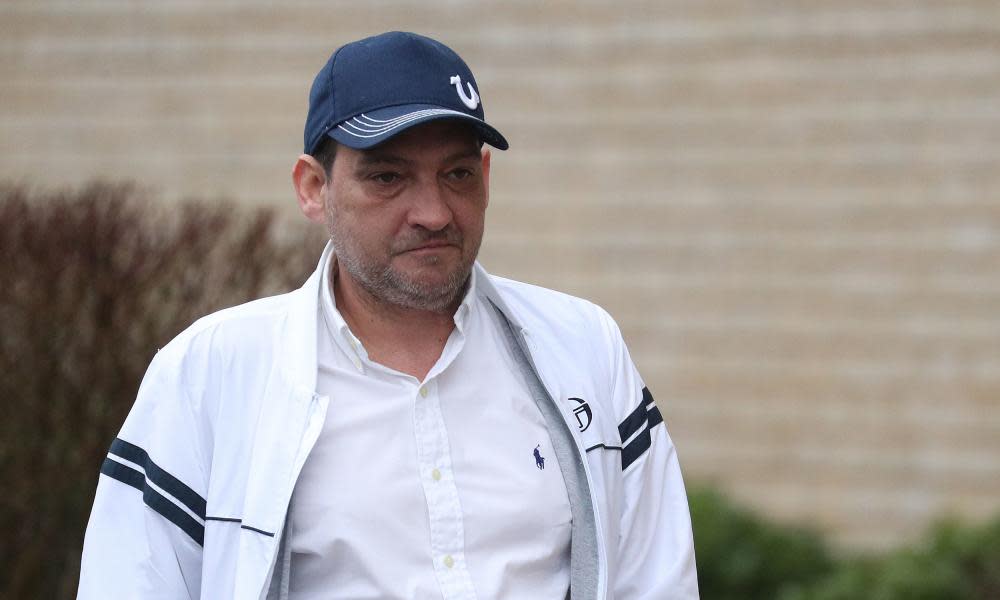Man jailed for attempting to steal Magna Carta from Salisbury Cathedral

A man who attempted to steal a priceless copy of Magna Carta from Salisbury Cathedral to prove it was a fake has been jailed for four years.
In October 2018, Mark Royden, 47, went equipped with a claw hammer, gloves and safety goggles, tampered with a CCTV camera and set off a fire alarm to cause a distraction before smashing the document’s protective case.
After attacking the case, he was pursued by members of the public, including a pair of American tourists, cathedral staff and stonemasons, who detained him in a works yard outside.
Royden, from Canterbury, Kent, was convicted at Salisbury crown court of the attempted theft of the charter and criminal damage to the display case, which cost almost £15,000 to repair.
When he was interviewed, Royden made a prepared statement in which he said he doubted the authenticity of the cathedral’s version of Magna Carta.
Nicholas Cotter, defending, said that a serious car accident in 1991 had caused the defendant brain damage and led him to be subject of a court of protection order over his finances and requiring a carer.
He said: “He has become a pest and a pain, mired in drink and drugs – heroin has been the drug of choice – and alcohol has blighted him. He is a caring, kind and helpful man and tries to do his best by people, but he is blighted by demons.”
Sentencing Royden, judge Richard Parkes QC said: “This was a determined attempt on a document of huge historical importance to our country and many other countries that share our democratic traditions.”
The judge praised the “courageous” acts of visitors and staff who apprehended Royden, including tourists Matthew and Alexis Delcambre from Louisiana.
He called on the high sheriff of Wiltshire, Maj Gen Ashley Truluck, who attended the hearing, to award Mr Delcambre £1,000 and £500 to Gary Price, the cathedral’s clerk of works.
Parkes said: “This is a story of a few good people acting alertly and bravely and they deserve our sincere thanks.”
Rob Welling, prosecuting, said Royden had made an “odd prepared statement” to police during which he doubted the authenticity of Magna Carta.
Welling said Royden has 23 previous convictions for offences including theft and criminal damage. These included spray-painting the doors of Exeter police station, attacking council benches with an angle-grinder, and putting a concrete block through the windows of a firm of solicitors.
When Royden was convicted, Parkes pointed out to the jury that the right of a man to be tried by his peers was enshrined in Magna Carta.
He said: “We are not concerned with the authenticity of Salisbury Cathedral’s Magna Carta. It’s a state document of huge significance and one of four dating back to 1215 and the meeting of King John and the barons of Runnymede.”
The document was examined for damage in early 2019 before being put back on display after the attack. Tiny glass shards and fine dust fell on to the Magna Carta frame, but the protective casing did its job. The only damage was to two modern paper hinges that help hold the Magna Carta to the board it rests upon, which were easily replaced.

 Yahoo News
Yahoo News 
